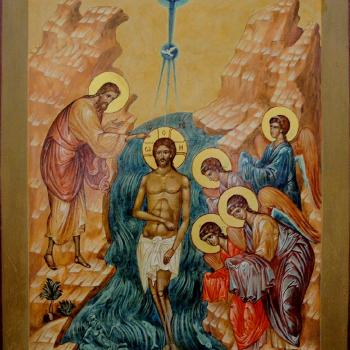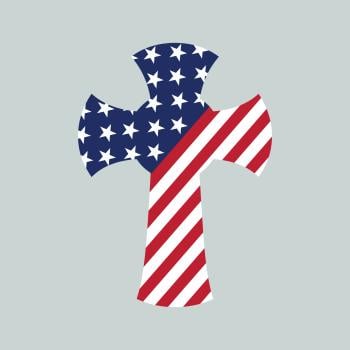I've seen all the headlines, read the studies. I know that America is rapidly becoming a nation in which "None of the Above" becomes the most frequent response to pollsters asking about someone's religious affiliation, and I know why, both from the data and from personal experience. I know that many people perceive religion as superstitious, judgmental, prejudiced, even hateful and dangerous. (Witness the popularity of the New Atheists and their attacks on all religion post-9/11!) So I know why "spiritual but not religious" might seem to some people like a very good idea.
But I also know this: religion saved me when spirituality could not. Praying to an unknown God did not give me hope or direction. Meditation only convinced me I was the wrong sort of person to meditate. Works of compassion I offered as an individual felt isolated and ultimately futile. Friendships even with other compassionate people didn't feel like communities. Reading about wisdom traditions and spiritual practice offered only momentary solace, and often I didn't have the strength or support to live out the insights I was finding.
On my own — without a formal tradition — I discovered to my very great chagrin that I was doomed.
I was rescued by a community of faith in east Austin, Texas, who were acting out their core religious beliefs. They saved me because their beliefs called them to practice love and compassion, not because they sought to convert me to those core religious beliefs. And they did more than just perform a rescue mission, important as that would have been for me. The good people of St. David's Episcopal Church offered me purpose, taught me that I was called to help rescue others, and supported me as I went out to teach, to write, to do the work for peace and justice that they inspired (and still inspire) me to do.
Religion saved me.
It's just that simple.
That taste of life-changing religion is why, last year, I agreed to write a book about why I love my faith tradition — the Episcopal Church — even knowing all about the national downturns in denominational affiliation and the cultural movement away from organized religion. That book, My Church Is Not Dying, actually seeks to answer the question "What good is religion, anyway?" by gathering the voices and stories of people like me who have discovered that, under the right circumstances, religion is not a force of repression and judgment but a force for light and life.
When religion works, it reminds us that we are not alone in the hard work of walking across the planet. It gathers us to pour out our brokenness and, in turn, to have healing balm poured on those wounds. It challenges us to look beyond our own lives to the brokenness of our neighbors, and it encourages us to see everyone as our neighbors. It provides a pattern of focus and stillness in formal worship and in spiritual practice that helps us live in peace with ourselves and others. And it offers us hope, that most elusive of qualities in a world full of violence, greed, apathy, and despair.
Alain de Botton, in his book Religion for Atheists, writes that as illogical as he finds the beliefs behind it, the Holy Eucharist, central to the faith and practice of many Christians, actually offers the perfect model of a practice that gathers disparate people together, breaks down the barriers between them, and inspires them to serve others. I did not know how much I would be shaped by the Eucharist before it became a regular part of my life. Now I can't imagine life without it, or without those who take it alongside me.
My life, this life I did not expect to go on living, has become richer, more beautiful, more meaningful than it ever was when I thought I could find my own peace with the world. Religion has helped me to love others and not to exclude them. Religion, to my very great surprise, has saved my life and my soul, and I am only sorry it took me so long to find this particular expression of Christianity.
Can religion be a divisive and dangerous force? Yes. Of course it can. We see the evidence in the news daily.
But I am here to tell you, from my own hard-won experience and from my own close observation, that religion can also be this life's greatest good.
4/1/2015 4:00:00 AM





